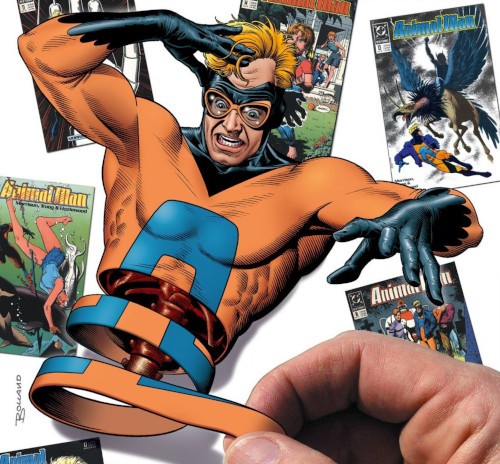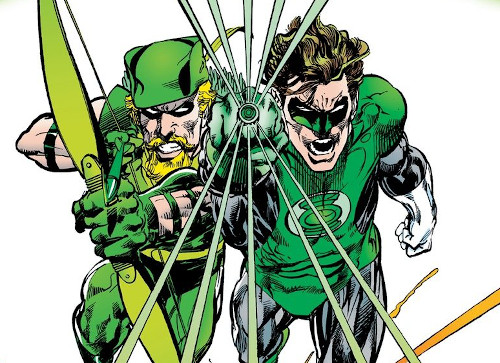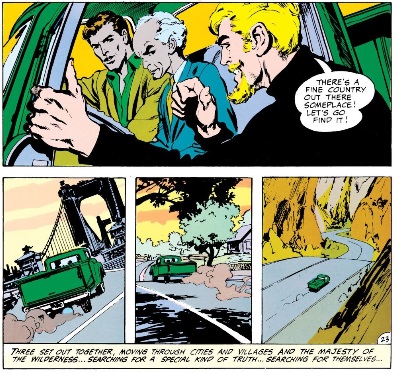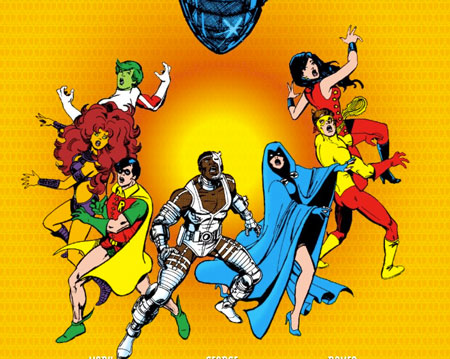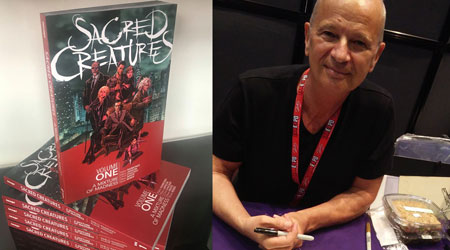
This week, Emmet, Patrick, Tim, and Chuck Coletta talk about their favorite comics of the past decade! If you’re looking for good comics that you might have missed from the 2010s — from superhero to comedy, historical to horror — we’ll give you plenty of titles to look up!
(All titles below are linked to Amazon – to help support the show, pick up any titles you’re interested in through these links!)
EMMET
Finder: Talisman HC by Carla Speed McNeil
by Carla Speed McNeil
Love In Vain: Robert Johnson 1911-1938, The Graphic Novel by Jean-Michel Dupont and Mezzo
by Jean-Michel Dupont and Mezzo
I Love This Part: Hardcover Edition by Tillie Walden
by Tillie Walden
My Favorite Thing Is Monsters by Emil Ferris (DCP 613)
by Emil Ferris (DCP 613)
Delicious in Dungeon by Ryoko Kui
by Ryoko Kui
Gast by Carol Swain
by Carol Swain
Giant Days and Steeple by John Allison
and Steeple by John Allison
Providence by Alan Moore & Jacen Burrows
by Alan Moore & Jacen Burrows
Immortal Hulk by Al Ewing and Joe Bennett
by Al Ewing and Joe Bennett
Julio’s Day by Gilbert Hernandez
by Gilbert Hernandez
Orc Stain Volume 1 by James Stokoe
by James Stokoe
Sally Heathcote, Suffragette by Mary M. Talbot, Bryan Talbot, Kate Charlesworth
by Mary M. Talbot, Bryan Talbot, Kate Charlesworth
The Abaddon by Koren Shadmi
by Koren Shadmi
The Experts by Sophie Franz
by Sophie Franz
Surface Tension by Jay Gunn
by Jay Gunn
Special Exits by Joyce Farmer
by Joyce Farmer
SNARKED: Forks and Hope by Roger Langridge
by Roger Langridge
Peter Cannon: Thunderbolt by Kieron Gillen and Caspar Wijngaard
by Kieron Gillen and Caspar Wijngaard
Henni by Miss Lasko-Gross
by Miss Lasko-Gross
PATRICK
Batman: The Jiro Kuwata Batmanga by Jiro Kuwata, translated by Sheldon Drzka (To the Batpoles! 64)
by Jiro Kuwata, translated by Sheldon Drzka (To the Batpoles! 64)
Four Color Fear: Forgotten Horror Comics Of The 1950s edited by Greg Sadowski and John Benson
edited by Greg Sadowski and John Benson
Rover Red Charlie by Garth Ennis and Michael Dipascale
by Garth Ennis and Michael Dipascale
Dungeon Quest: Book One by Joe Daly
by Joe Daly
The Bulletproof Coffin by David Hyne and Shaky Kane
by David Hyne and Shaky Kane
My Favorite Thing is Monsters by Emil Ferris
Fatale by Ed Brubaker and Sean Phillips
by Ed Brubaker and Sean Phillips
Southern Bastards by Jason Aaron and Jason Latour
by Jason Aaron and Jason Latour
Richard Stark’s Parker series by Darwyn Cooke
series by Darwyn Cooke
Hawkeye by Matt Fraction and David Aja
by Matt Fraction and David Aja
Moon Knight by Warren Ellis and Declan Shalvey
by Warren Ellis and Declan Shalvey
Madman In Your Face 3D Special by Michael Allred & Laura Allred
by Michael Allred & Laura Allred
Hark! A Vagrant by Kate Beaton (DCP 222)
by Kate Beaton (DCP 222)
H.P. Lovecraft’s The Hound and Other Stories by Go Tanabe (Tanabe’s take on Lovecraft’s At the Mountains of Madness is discussed in DCP 641)
by Go Tanabe (Tanabe’s take on Lovecraft’s At the Mountains of Madness is discussed in DCP 641)
Providence by Alan Moore & Jacen Burrows
Rachel Rising by Terry Moore
by Terry Moore
Afterlife with Archie by Roberto Aguirre-Sacasa, Francesco Francavilla, and Jack Morelli
by Roberto Aguirre-Sacasa, Francesco Francavilla, and Jack Morelli
Harrow County by Cullen Bunn and Tyler Crook
by Cullen Bunn and Tyler Crook
Frontier #6 by Emily Carroll
#6 by Emily Carroll
TIM AND CHUCK
Gotham Academy by Becky Cloonan and Karl Kerschl
Daredevil by Mark Waid, Paolo Rivera, and Marcos Martin (Brief mention!) (audio version of issue 1 discussed in DCP 313)
by Mark Waid, Paolo Rivera, and Marcos Martin (Brief mention!) (audio version of issue 1 discussed in DCP 313)
Scooby-Doo Team-Up by Sholly Fisch and Dario Brizuela
by Sholly Fisch and Dario Brizuela
Saga by Brian K. Vaughan and Fiona Staples (DCP 609)
by Brian K. Vaughan and Fiona Staples (DCP 609)
Life With Archie: The Married Life by Paul Kupperberg, Michael Uslan, Norm Breyfogle, Andrew Pepoy, and Joe Rubenstein (Archie in general is discussed in DCP 338)
by Paul Kupperberg, Michael Uslan, Norm Breyfogle, Andrew Pepoy, and Joe Rubenstein (Archie in general is discussed in DCP 338)
Paper Girls by Brian K. Vaughan and Cliff Chiang (DCP 596)
by Brian K. Vaughan and Cliff Chiang (DCP 596)
Seconds by Brian Lee O’Malley (DCP 419)
by Brian Lee O’Malley (DCP 419)
The Superior Spider-Man by Dan Slott and various artists (Dan Slott’s earlier Spider-Man work is discussed in DCP 275)
by Dan Slott and various artists (Dan Slott’s earlier Spider-Man work is discussed in DCP 275)
Podcast: Play in new window | Download
Subscribe: | More
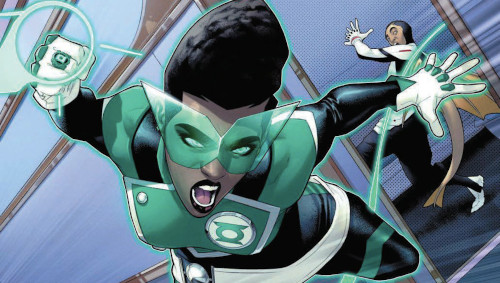

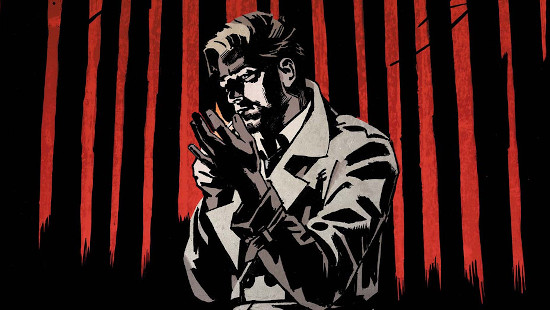
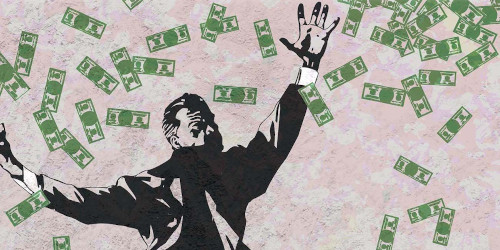 Mark Russell has been one of the standout comics writers of the past five years, in part because he’s possibly the only mainstream comics writer doing satire (or, he would argue, fables). Since he burst on the scene with Prez and The Flintstones, he’s written a number of comics for several publishers that aren’t just comedy or action, they express his views and have deeper meanings.
Mark Russell has been one of the standout comics writers of the past five years, in part because he’s possibly the only mainstream comics writer doing satire (or, he would argue, fables). Since he burst on the scene with Prez and The Flintstones, he’s written a number of comics for several publishers that aren’t just comedy or action, they express his views and have deeper meanings.
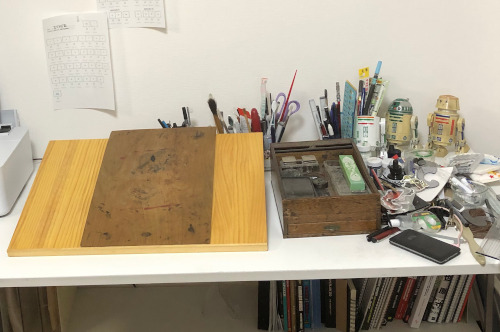 Many of us have dreamed of getting paid to make comics. Except in rare cases, working in American comics means being a freelancer. While a creative career can be rewarding, there are plenty of downsides, too.
Many of us have dreamed of getting paid to make comics. Except in rare cases, working in American comics means being a freelancer. While a creative career can be rewarding, there are plenty of downsides, too.